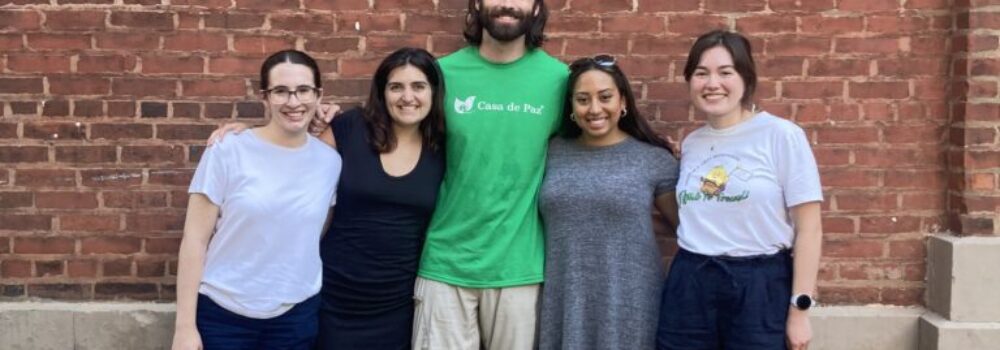John Fening was an undergraduate at the University of Cincinnati when he learned of Casa de Paz in a random group chat. Three years later, Fening – now a medical student at UC – is spending 30 hours a week this summer working at Casa de Paz as an intern with the College of Medicine’s Urban Health Project.
Fening’s primary responsibility as a volunteer and intern is to provide child care to the children living there – an important role in any setting, but especially considering the population Casa de Paz serves.
“When I first came on board, I was told how important it is to have positive male role models and that always stayed with me,” Fening, 27, says. “Sometimes with experiences they’ve had, they may have misconceptions about how men act, and I hopefully try to show them it doesn’t have to be like that. We can be kind and gentle.”
During the school year, Fening comes to the house once or twice a week, for anywhere from an hour to four, to hang out with the families at home or take them on outings to the movies or zoo or a park. He also provides child care when the women are participating in Grupo Fenix, and he sometimes accompanies them to medical or legal appointments. This summer, with his increased hours, he also lends a hand with car care, insurance questions, pharmacy and food pantry visits.
The Urban Health Project internship pairs medical students with community partners, and this is the first time Casa de Paz has participated. The role has allowed Fening to continue improving his Spanish, and he’s also organized a tutoring program with UC medical students who are studying medical Spanish and Casa de Paz residents to learn from each other.
His volunteer work has Fening considering family medicine as a specialty, and it’s reinforced the trauma-informed care approach he is learning in medical school.
“I like how much I’m able to learn from these families,” he says. “Each one has their own experience. I think it helps me learn how to interact with kids and families and meet kids where they are. I’ve learned each kid has a different response to trauma and might need something different, so that’s what I try to do.”



